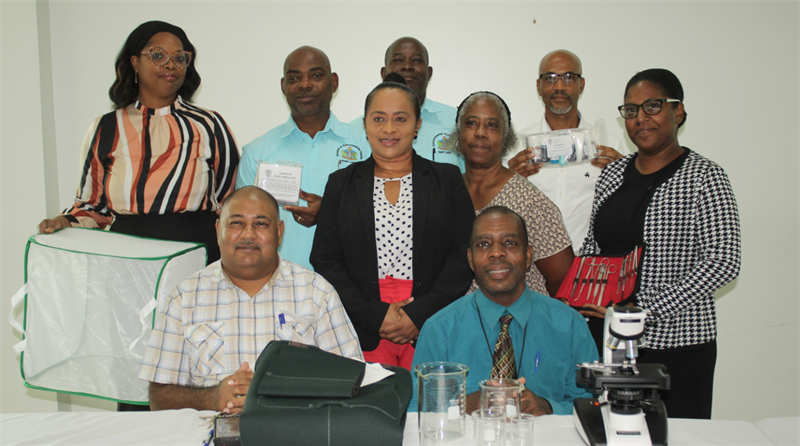A FULLY OPERATIONAL ENTOMOLOGY LAB WILL SUPPORT THE GOAL OF ELIMINATING VECTOR-BORNE DISEASES.
 The Project Implementation Unit through the OECS Regional Health Project recently handed over to the Environmental Health Division within the Ministry of Health equipment for the entomology lab.
The Project Implementation Unit through the OECS Regional Health Project recently handed over to the Environmental Health Division within the Ministry of Health equipment for the entomology lab.
With a fully equipped entomology lab, the team from the Environmental Health Division will be able to monitor and test mosquito samples in an effort to make informed decisions in the area of fogging and other vector control interventions.
Enhancing the capabilities of the entomology lab through the purchase of equipment, signifies the commitment of the OECS Regional Health Project to strengthen public health surveillance and emergency management.
Chief Environmental Health Officer Dr. Parker Ragnanan says this handover of equipment marks significant progress being made with the entomology lab. He says this also supports the goal of eliminating vector-borne diseases on island.
“The equipment that we are about to receive will help us identify mosquito species and their resistance levels, and also allow us to plan better to respond to vector-borne diseases, especially mosquito-borne diseases. Knowing the mosquito species will help us plan a proper vector-control program in order to safeguard the health of the country.”
Acting Deputy Permanent Secretary in the Ministry of Health, Ernest Norbal, expressed gratitude to the OECS Regional Health Project for making this possible and emphasized on the commitment of the Ministry of Health to advance public health surveillance.
“The unit now has the tools it needs to explore, innovate and undertake public health surveillance that will contribute to the betterment of our society as a whole.”
The equipment for the entomology lab included items such as microscopes, slide mounting kit, aspirators, collapsible cage, collecting jars and disposable overalls, to name a few.
The equipment was purchased under the seond component of the OECS Regional Health Project at a cost of USD$94,851.89.